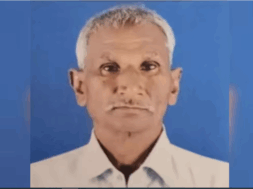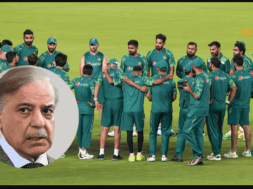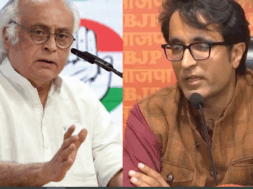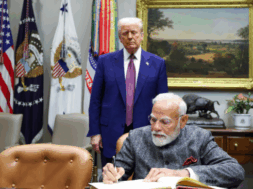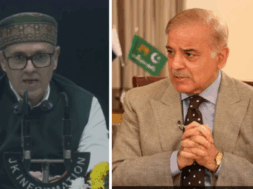
Manas Dasgupta
NEW DELHI, July 1: “Justice” rather than “punishment” will be the emphasis of the three new criminal laws that came into force in the country on Monday replacing the colonial era statutes and making the criminal law system “completely swadeshi” for the first time 77 years after independence.
The Union Home Minister Amit Shah, who led the exercise to review the country’s criminal law system, assured the people that the three new criminal laws would focus on providing justice instead of punishment and criticised the Opposition parties for politicising the issue. Mr Shah said the reform would help boost the pace of the judicial process and make India’s criminal justice system completely ‘Swadeshi.’
Addressing the media persons on the new criminal laws at the Parliament Library on Monday, Mr Shah said an “Indian soul” had been added to the justice system. “The provisions are such they many groups would be benefited. Many sections from the British era have been replaced by sections in sync with today.” On crimes relating to violence against women, Mr Shah said the new law provides for recording the survivor’s statement at her home and also mentioned an online FIR facility that will shield her from social stigma.
From July 1 onwards, the new laws — the Bharatiya Nyaya Sanhita (BNS), Bharatiya Nagarik Suraksha Sanhita (BNSS), and the Bharatiya Sakshya Adhiniyam (BSA) — replaced the British-era IPC, Code of Criminal Procedure, and the Indian Evidence Act, respectively.
Mr Shah clarified that the crimes committed on or after July 1 would attract the news laws while the pending cases would be dealt under the old laws. “If the date of crime is before July 1, 2024, then it will be tried under old laws, if it is later, it will be tried under new laws,” he said and added that it might take three to four years for all the laws and its technological upgrades to be implemented.
For the first time, mob lynching has been given specific mentioning in the criminal justice system. “There was no provision in law for mob lynching case. It has now been defined. This was a longstanding demand. Also, we have completely removed the section of treason and brought a new section for anti-national activities. Earlier, it was a crime to make a statement against the government. Now, a law will provide for action against attempts to harm India’s unity and sovereignty,” he said, sharing the highlights of the new criminal codes.
Mr Shah said the new criminal laws would create a modern legal system. “We have not just imbibed technology, but have pre-empted technological changes that may take place over the next 50 years. I believe this will be the world’s most modern criminal justice system.”
Mr Shah said videography is now mandatory during search and seizure exercises so that no one can be framed. The e-statement of a survivor of rape or sexual harassment was legally valid now, he said.
The new laws, he said, were victim centric. “Earlier, police picked someone up and his family members had to go to court. Now we have made it compulsory to maintain a register and e-register at every police station that will list which criminal is in police custody. So a habeas corpus plea in court won’t be needed,” he said. Searches and raids, he said, would be videographed.
After 75 years of the country’s independence, Mr Shah said these new laws were contemplated and subsequently colonial laws were scrapped. “Instead of ‘Dand’, it is now ‘Nyay.’ Instead of delay, there will be speedy trial and speedy justice. Earlier, only the rights of the Police were protected but now, victims’ and complainants’ rights will be protected too,” he added. During the press conference, Shah said the priority of sections and chapters in the new criminal laws is in line with the spirit of the Indian Constitution.
“The first priority has been given to (the chapters on) crimes against women and children. I believe that this needed to be done much earlier. An entire chapter with 35 sections and 13 provisions has been added. Now, gang rape will attract 20-year imprisonment or life imprisonment, rape of a minor will attract death penalty, a separate crime has been defined for sexual exploitation by hiding one’s identity or making false promises,” he said.
Mr Shah also clarified that new laws do not give more powers to police and remand period will remain 15 days only. “In first 60 days period, police can take custody for 15 days any time,” he said.
“In next 3/4 years entire system would get an uplift. From registration of FIR to delivery of judgement would be technology driven,” he stated adding that laws would be more scientific and evidence would be more technology based. “I want to assure the public, in the new law, justice can be received up to the level of the Supreme Court within three years of the registration of the FIR.”
Even while claiming that 99% of the police stations in the country had been computerised, Mr Shah admitted that “technology has not reached all police stations, I agree but BNS is applicable across the country,” Mr Shah said adding, it would be implemented before August 15 in all Union Territories. “Preparedness is required for Bharatiya Sakshya Adhiniyam, not for BNA, BNSS,” he added. Mr Shah also said the issue of bringing sexual crimes against men will be discussed since a Supreme Court verdict has mentioned this.
On terrorism, Mr Shah said it had been defined separately in BNS “as we have a zero terror policy, there are some instances when conspiracies are hatched outside the country.” He recalled how a bomb blast occurred when he was Gujarat Home Minster. “All conspirators walked free as terror was not defined.”
After sharing the highlights of the new criminal codes, Mr Shah proceeded to hit back at Opposition leaders’ remarks on the laws. The main opposition has alleged that the new laws were not properly debated upon and that the legislation related to them was “forcibly” passed in Parliament after 146 Opposition MPs were suspended.
In response, Mr Shah said, “The Lok Sabha debated this for nine hours 29 minutes and 34 members participated. The Rajya Sabha debated it for about 7 hours and 40 members participated.”
“Another lie”, he said, was that the Bills were brought after the mass suspension of MPs. “The Bill was listed beforehand by the business advisory committee. Maybe the Opposition did not want to participate. So they resorted to activities so that presiding officers are compelled to suspend them,” the Home Minister said.
Mr Shah said his ministry had sought suggestions from all MPs, Chief Ministers, Supreme Court and high court judges and bureaucrats on the new laws. “All these suggestions were studied. I chaired 158 meetings to discuss the issue and we came up with a Bill. But the Parliament didn’t clear it just like that. It was sent to the Standing Committee. It was again discussed for three months and members of all parties participated in it,” he said.
He said apart from “four-five political-style suggestions, every suggestion was imbibed, 93 amendments made and the Bill was cleared by the cabinet again and then tabled it in Parliament. To give a political colour to such an extensive exercise happening after centuries is not right. I appeal to friends in the Opposition, there are many issues for politics, but these laws are an exercise to ensure timely justice and self-respect for 140 crore people. So please cooperate and if anyone has anything to say, my office is open,” he said.


